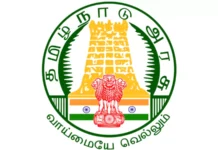voter ID number
A voter ID number is crucial in the democratic process, acting as a unique identifier that connects every eligible citizen to their electoral record. Instead of being just a random string of digits, this number associates personal information such as name, age, constituency, and polling station with the official database managed by the Election Commission. Grasping the significance of a voter ID number, its applications, and its importance can empower individuals to engage more confidently in elections and ensure accurate civic documentation.
Fundamentally, a voter ID number enables election authorities to efficiently handle millions of records. This is particularly vital in countries with large populations. The number guarantees that each citizen is counted only once, preventing duplication and preserving the integrity of voter lists. When an individual registers to vote, the electoral office verifies their identity, residence, and age. Once these details are confirmed, the system assigns a voter ID number that becomes part of their permanent electoral identity unless they change their residence or update their information.
Additionally, the voter ID number serves to streamline voting processes. When voters arrive at polling stations, officials utilize this number to swiftly verify their eligibility. This minimizes confusion, saves time, and aids in organizing queues more effectively. In certain regions, the voter ID number is also employed to cross-reference voter turnout and refresh polling records at the conclusion of election day. By linking the number to an electronic system, authorities can monitor participation without jeopardizing the confidentiality of each individual vote.
Related Posts

The voter ID number is crucial for updating and correcting electoral information. When an individual changes their address, updates their name, or requires a replacement voter card, this number serves as the foundation for all modifications. Rather than generating a new identity each time, the system simply adjusts the details linked to the existing number. This continuity not only minimizes administrative mistakes but also aids voters in preserving long-term credibility on the electoral rolls. It is especially beneficial for individuals who frequently move for work, education, or family reasons, as it guarantees consistency across various constituencies.
In today’s digital age, the voter ID number facilitates access to online electoral services. Numerous election commissions now provide portals where citizens can check their registration status, locate their polling place, download digital voter slips, or monitor the status of applications for new voter cards. These services typically require the voter ID number as a login reference. By utilizing this standardized identifier, the system ensures precise data retrieval while safeguarding sensitive personal information. It also enables citizens to independently verify their records without the need for physical visits to government offices.
The significance of protecting one’s voter ID number cannot be emphasized enough. While it may not be as sensitive as financial data, it remains a vital aspect of personal civic identity. Unnecessary sharing or insecure storage can result in misuse. For instance, someone might try to impersonate a voter or gain access to their electoral information. Although such incidents are uncommon and authorities implement multiple verification layers to thwart fraud, citizens should still handle their voter ID number with care. Ensuring the security of digital copies, refraining from public sharing, and confirming communications from official sources contribute to maintaining electoral safety.
Ultimately, the voter ID number represents more than just an administrative mechanism—it embodies an individual’s rights and duties within a democratic framework. Holding this number signifies recognition as a member of the electorate, the ability to influence leadership choices, and a role in shaping national policies. It symbolizes inclusion, identity, and active participation. For many, receiving their voter ID number for the first time is a pivotal moment, signifying their entry into active civic involvement.
Website Link
Grasping the function of the voter ID number helps individuals recognize its wider importance. It facilitates election management, promotes transparency, simplifies record maintenance, and improves the voting experience. Most importantly, it acts as a gateway to exercising the essential democratic right to vote, empowering every eligible citizen to express their opinions.
























